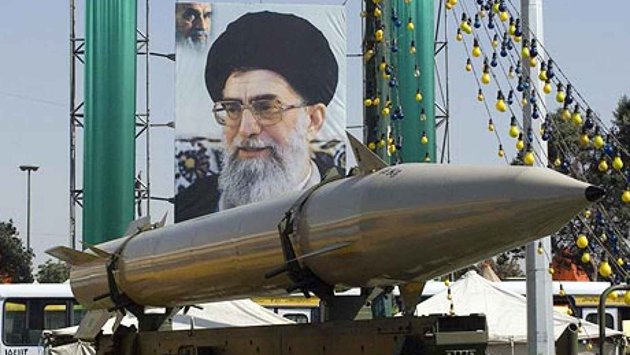Regional balance of power in danger of shifting toward Iran
الدكتور ماجد ربيزاده: توازن القوى الإقليمي في خطر وهو يميل لمصلحة إيران
Dr. Majid Rafizadeh/Arab News/September 06/18
Some politicians, scholars and policy analysts continue to advocate for rapprochement and an improved relationship with the Islamic Republic. They frequently buttress their argument with the following hypothesis: If the Iranian government is offered financial incentives, sanctions relief and enhanced legitimacy on the regional and global stage, it will turn into a constructive state actor.
In other words, the argument goes that, if the Iranian leaders are welcomed by the international community and allowed to join the global financial system, they will alter the core pillars of their government’s foreign policies. This will include halting attempts to incite anti-American and anti-Saudi sentiments, containing its nuclear and ballistic missile ambitions, as well as stopping financial, military and political support for militias and terror groups.
In an attempt to make this theory a reality, the West, specifically the EU, improved its economic and political ties with the ayatollahs, leading to six world powers — China, France, Russia, the UK, the US and Germany — offering the Iranian authorities a beneficial nuclear deal.
But this theory of appeasing the theocratic establishment of Iran in order to change Tehran’s destructive behavior has repeatedly failed. In fact, the latest developments — including the shipment of missiles to Iraq — highlight the idea that the Iranian regime is actually becoming more radical.
Iranian leaders are attempting to boost the regime’s ballistic missile capacity throughout the region in defiance of international norms and existing sanctions. Iran’s transfer of ballistic missiles to Baghdad raises the question whether Tehran is directly violating UN Security Council Resolution 2231, which was reached in 2015. This states that: “Iran is called upon not to undertake any activity related to ballistic missiles designed to be capable of delivering nuclear weapons, including launches using such ballistic missile technology.”
Another critical issue to address is: Why is Iran determined to transfer its ballistic missiles to other Arab countries? Iraq is not the first country that Iran has been trying to ship weapons to. Previously, the US Navy and allied nations intercepted several shipments of weapons from Iran heading to Yemen, and a UN report conclusively revealed a connection between Iran’s short-range ballistic missiles and the Houthis.
If Iran obtains the capabilities to produce ballistic missiles in #Iraq, the regional balance of power will significantly tip in favor of Tehran and its militias and proxies.
The Iranian regime is trying to expand its arc of influence by pursuing an aggressive missile policy in other countries, such as Iraq and Yemen. Most likely, Tehran’s long-term ballistic missile strategy is not limited to arming militias and terror groups, but to have the capacity for manufacturing short-range and long-range ballistic missiles in other countries. Since Iran possesses the technology, it will be much more efficient and cost-effective to produce missiles in other nations.
This is a critical and perilous development because, if Iran obtains the capabilities to produce ballistic missiles in Iraq, the regional balance of power will significantly tip in favor of Tehran and its proxies. This will also pave the way for Iran to ultimately set up a permanent military base in Iraq, which would be a grave danger to the national security of neighboring countries.
Unfortunately, several European countries have been totally silent regarding the Iranian regime’s defiance and aggressive missile policy. The latest revelations ought to be a lesson to Europe that, no matter how many concessions they give to the ruling mullahs, the Islamic Republic will not alter the core pillars of its foreign policy.
Not only has Tehran maintained its revolutionary principles, but it is also pursuing more aggressive, militaristic and expansionist policies in the Middle East. Such developments must be alarming to the international community due to the fact that, by providing ballistic missiles to militias and terror groups, the Iranian authorities are escalating radicalization and militarization, thus destabilizing the whole region.
Iran’s aggressive missile policy highlights the fact that the regime has turned into a more defiant and radical establishment. It also demonstrates that Tehran has become more empowered and emboldened to pursue its hegemonic ambitions in the region.
*Dr. Majid Rafizadeh is a Harvard-educated Iranian-American political scientist. He is a leading expert on Iran and US foreign policy, a businessman and president of the International American Council. Twitter: @Dr_Rafizadeh






















